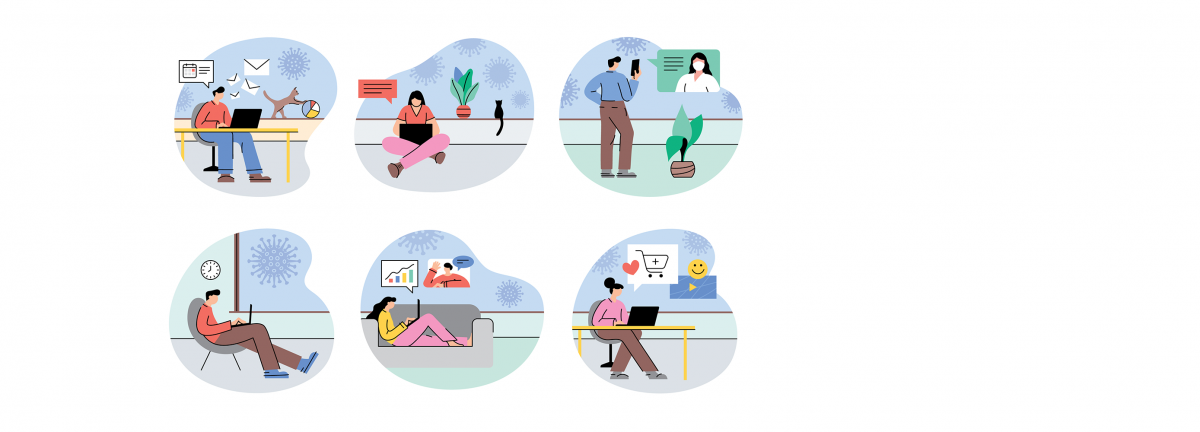Journal 07 on the office of the future — where’s the best place to work from?

Welcome to Design Council’s weekly journal. This week’s entry is on the office of the future and on the postponement of the Tokyo 2020 Olympic Games and its impact on their infrastructure.
Truth is ever to be found in the simplicity, and not in the multiplicity and confusion of things
Isaac Newton
Tim Stonor, Deputy Chair on unlock inertia
The question about when we return to work is also a question about how we return to work. For many, remote working has been a revelation. Perhaps not ideal in every respect but certainly helpful in many: the convenience of not commuting, the realisation that Zoom, Teams, Miro, Skype, WhatsApp and other platforms mean it’s possible to stay in touch in ways we hadn’t realised.
So there’s a fair amount of “unlock inertia” going around and a good set of very reasonable questions being asked:
- Will anyone want to work 9–5 anymore?
- Will anyone want to work every day of the week?
- Can we carry on having those online meetings because they seem, at least for some purposes, to be more efficient than round-table events?
- And how do we stop ourselves drifting back to the old normal?
The table below is a first attempt to cross-reference between activities and behaviours. I’ve placed a tick against which behaviours are typically associated with which activities. For example, process-based activities such as regular meetings with repetitive agendas require a set of activities that combine collaboration, concentration and communication. The fourth behaviour, contemplation, is arguably less important for process-based work and more associated with the behaviours that are creative and reflective.
I’ve then taken each task and asked the questions, which is better done in a shared workplace? and which can be done remotely e.g. from home? Of course, you might argue that all tasks are better done in offices so that reflective contemplation can be quickly converted to creative collaboration. After all, that is what good offices do well: one moment you’re doing one task and the next you’re involved in another, perhaps unexpectedly as the result of an unplanned encounter with a fellow staff member or visitor. Read the full article on Tim’s blog.
Victoria, Lead Programme Manager on Tokyo 2020 Olympic Games
The postponement of the Tokyo 2020 Olympic Games to 2021 due to Coronavirus poses an interesting challenge to the city. How does its urban plans, policies and infrastructure adapt effectively in a post-COVID world?
On a recent trip to Japan in December 2019, the high excitement for and expectations of the Games were palpable. There were major works to interchange stations, renewed public spaces and art installations promoting the Games across the city. A year on from today, would these spaces and installations look and function in the same way?
My postgraduate research theses on urban plans and policies surrounding the London 2012 Games (at the University of the Arts London and University of Oxford respectively) suggest this is not a straightforward answer. Competition between global and local interests in the Games is evident in both policy-making and urban design. In Tokyo’s case, would the current global outlook and priorities prevail?
The views and opinions expressed in this journal are those of the authors and do not necessarily reflect the official policy of Design Council.
Subscribe to our newsletter
Want to keep up with the latest from the Design Council?
